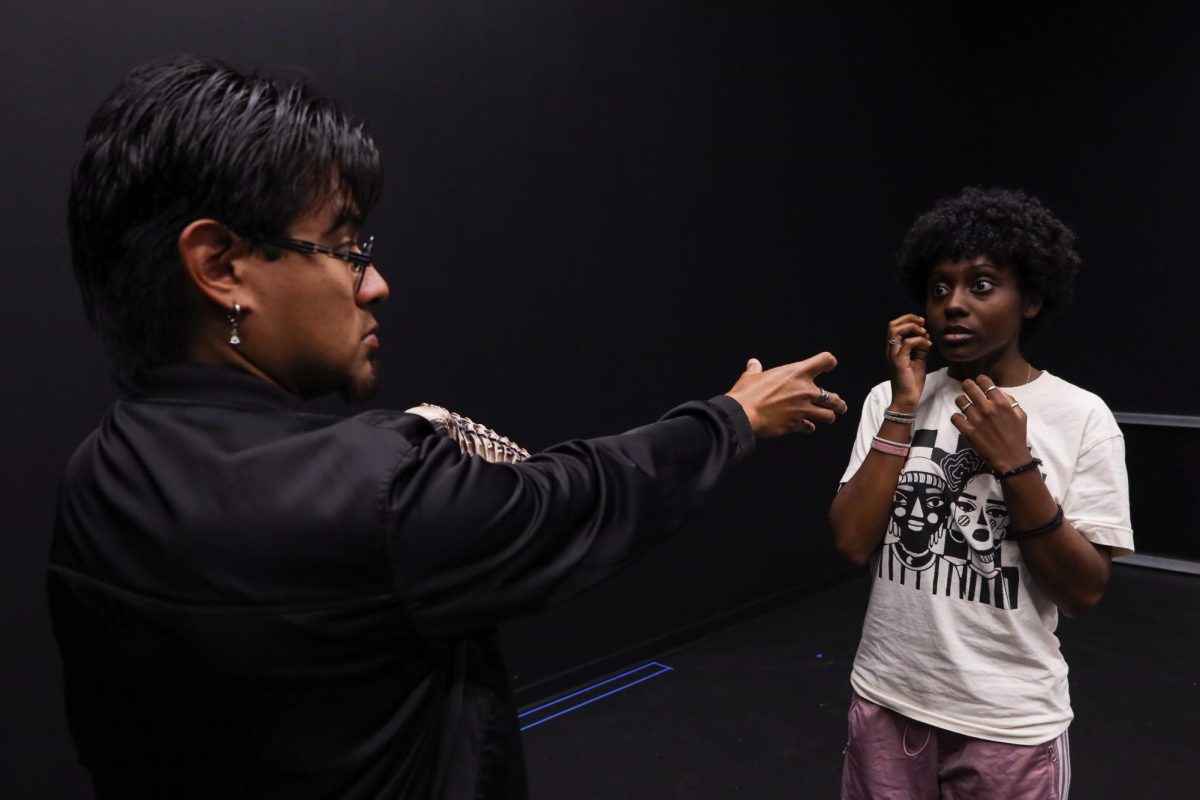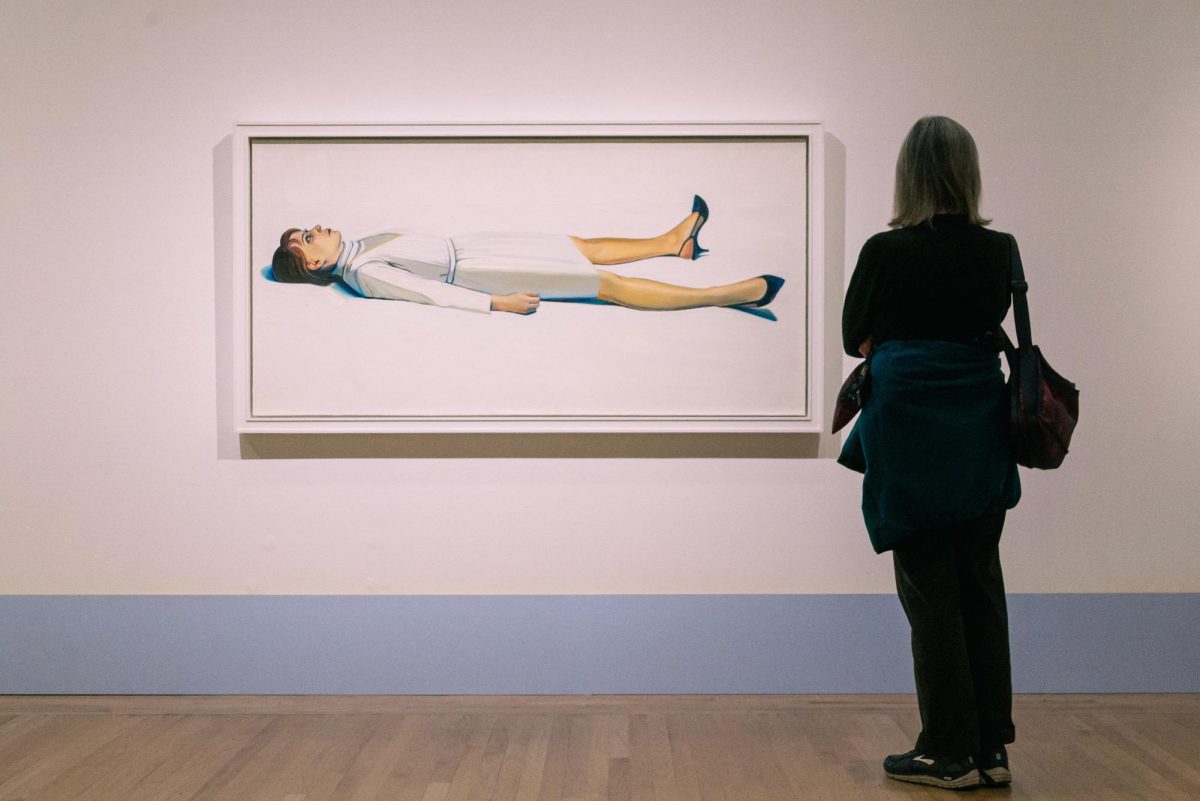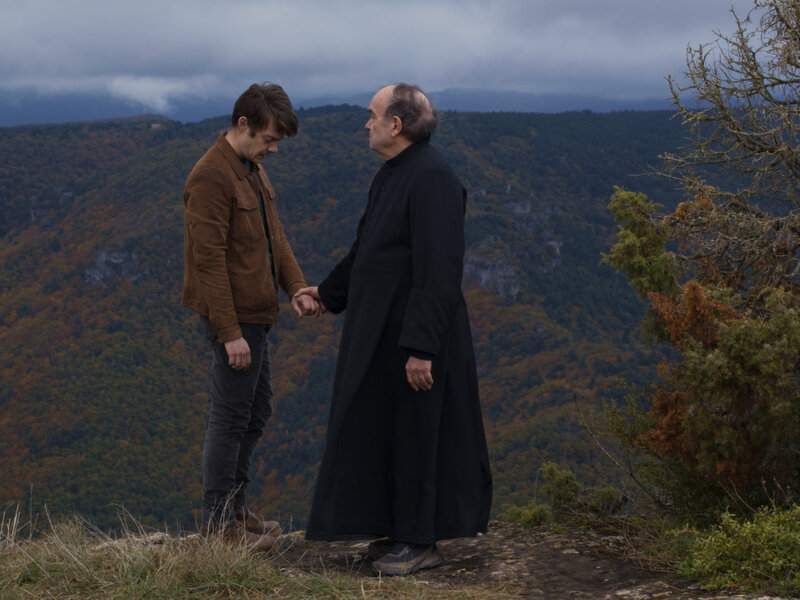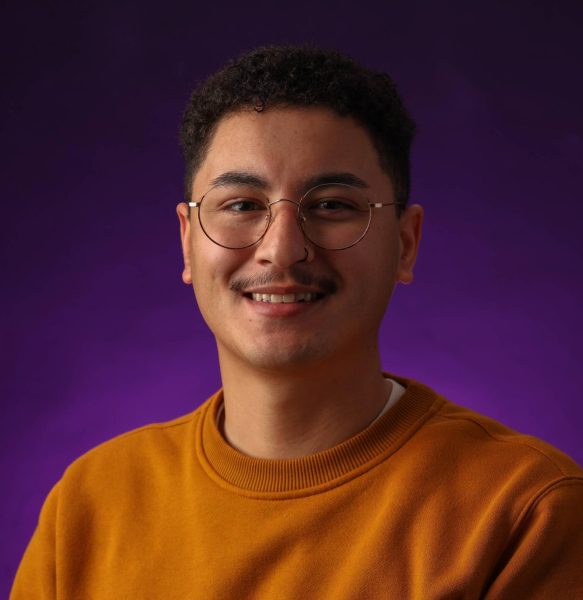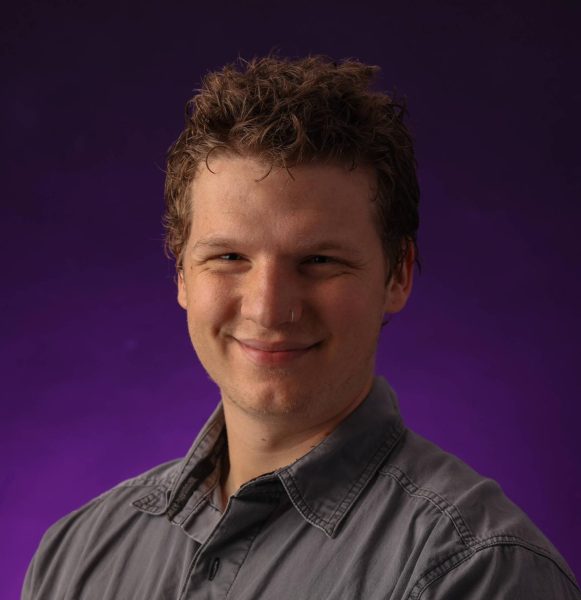To the right of San Francisco State University’s Little Theater is a square room painted black from top to bottom, known by some students as “The Lab.” It’s nearly empty except for two rows of deep purple chairs and a small table in the corner. A man dressed in all black is leaning forward in one of the chairs as he watches a young woman project a monologue over him into the black wall in front of her.
In this particular read-through, she is playing the character of God. After she goes quiet her gaze goes back to the man in the chair, the director of the play, but notices that he’s not satisfied with her performance as he begins to share his critiques. He encourages her to not hold back the energy from her delivery because she needs to be larger than life, which she agrees with. This is just one version of the character being crafted in The Lab.
Rehearsals are underway for “Everybody,” the only dramatic play that the Theatre Arts program at SFSU will put on this fall. With a rotating cast every performance, those involved are hoping audiences come to as many shows as possible during its run from Oct. 24 through Nov. 2.
Written by playwright Branden Jacobs-Jenkins, “Everybody” is a modern adaptation of the 15th-century play “Everyman,” in which the titular character Everyman struggles with moral turmoil in the face of their own death. Though the original was heavily centered around the Roman Catholic Church and its concepts of the afterlife, Jacobs-Jenkins opens up the play’s scope to what American audiences look and think like today.
“I don’t usually think things are funny but I think this is really funny,” said Ti Secrease, one of the actors playing the character of Everybody. “It also has a very deep, impactful resonating meaning that I feel like everybody can relate to.”
Jacobs-Jenkins’ self-referential writing is best exemplified by playing on people’s natural fear of death, which is personified by the two characters Everybody and Death.
“The actors don’t know who’s playing Everybody, who’s dying,” said actor Danie Citlali Valdivieso. “Death is random and it comes for all of us at the end of the day. You never know when you’re going to go up for death.”
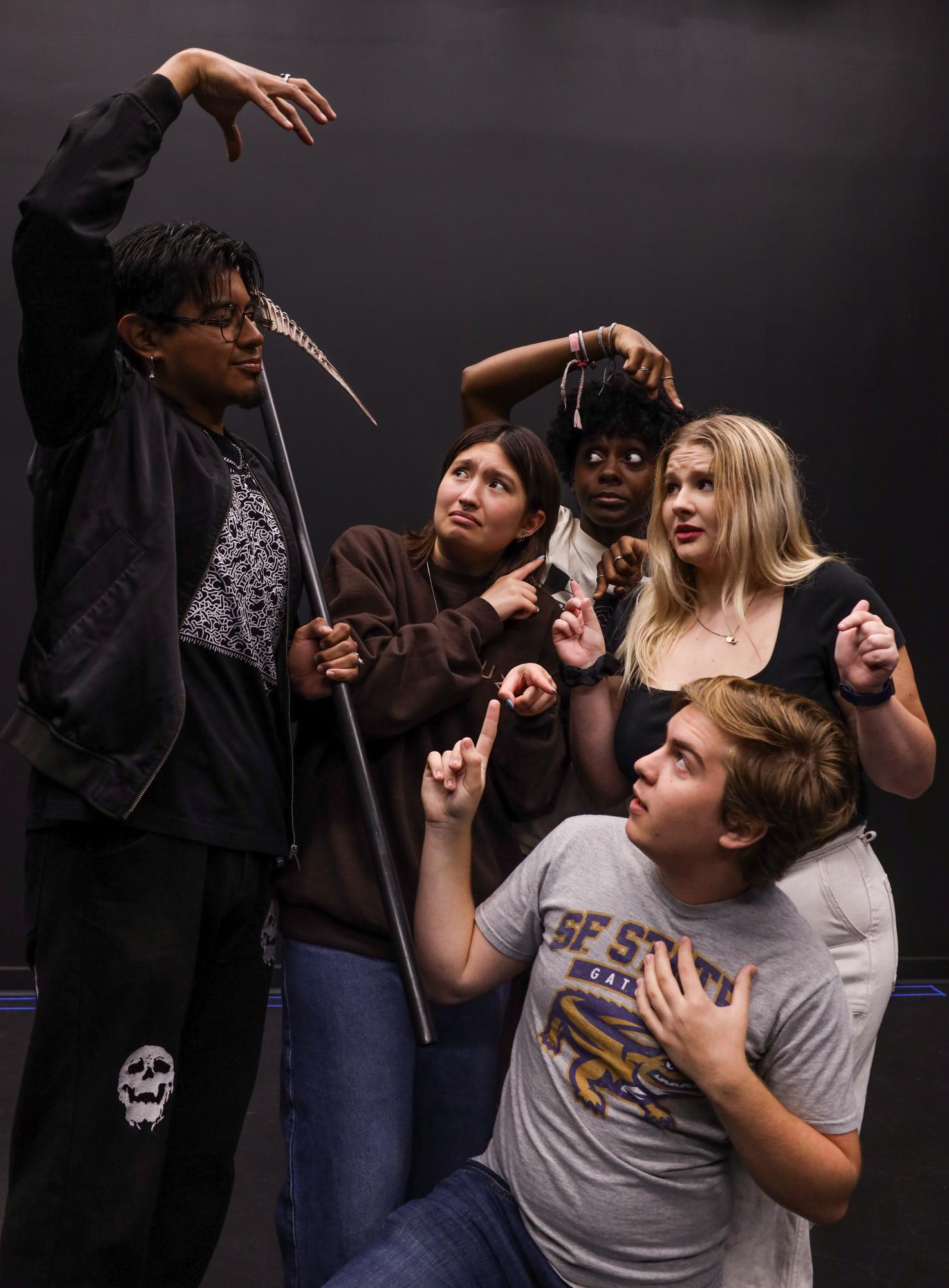
The most distinct feature of the play is the lottery system that the cast participates in. All lead roles will be assigned shortly before each performance at random so the actors need to be prepared to play a different character every day. Director Kurt Daw said that this system gives everyone “equal amounts of time” as a lead. However, actors must be prepared to speak any line in the play from memory.
“It challenges actors and it just pushes the boundaries because I don’t think we’ve had things like that in the past,” said Sherrell Teague, one of the actors preparing to play two roles. “We don’t really work on the same technique and tactics or choices we make.”
On any given performance, an actor may be called for a leading role, meaning other actors who share that role will be playing a supporting character.
“I love it so much because it gives me more experience,” Secrease said. “I have to work equally on each character so that I’m equally good for every day.”
No two performances will be the same experience because of the lottery system. “You can literally go to this play every night and see a different version of the play every night,” Teague said. “Even with the same people, we’re just playing different characters.”
Sherrell Teague and Racine Strong are double cast as the Usher and God in the play.
“I definitely think it can be a shocker, especially because we’re both women,” Strong said. “God as a woman on stage is not something that we typically get to act and experience.”
Characters such as Everybody, God and Death will be played by a diverse cast of actors, which goes along with the playwright’s idea of the audience largely seeing themselves in the characters of the play. Making the main character and theme universally relatable allowed every actor the possibility of joining the cast. Auditions were even opened up to the university’s student body as a whole.
“In a lot of productions there’s specific archetypes you need or a specific look for specific characters,” Strong said. “It’s been really liberating in a lot of ways and there’s a much better sense of community.”
That sense of community has created a space for the cast and crew to feel safe and have fun with the production. The students made the decision to have a pajama day rehearsal one week and they also decided together that their Oct. 31 performance will include an audience costume contest judged by the actor playing Death that evening, according to Daw.
“That’s the point,” said Daw. “They enjoy each other and they’re having a good time.”





